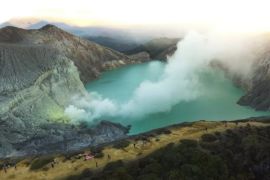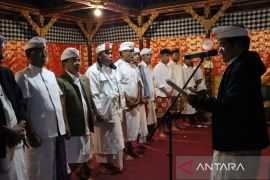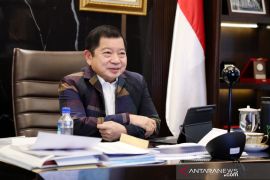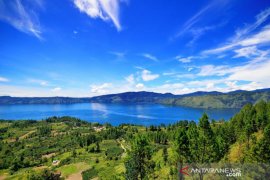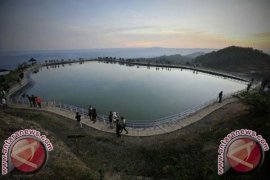Jakarta (Antara Bali) - The office of the Coordinating Minister for Maritime Affairs, the Energy and Mineral Resources Ministry and the Tourism Ministry will introduce a number of geoparks in Indonesia in the Global Geopark Network Expo and Conference 2016 (GGN 2016) in English Riviera, Britain.
In the international forum from September 27-29, the Indonesian delegation will come with a theme of "Wonderful Geoparks of Indonesia", the delegation said in a statement here on Monday.
The Indonesian stand would be filled with promotional materials for the Geopark of Ciletuh-Palabuhan Ratu, Batur UNESCO Global Geopark, Geopark Toba, Geopark Rinjani, Gunung Sewu Global Geopark, Geopark Merangin, and Geoparks of Maros-Pangkep and Raja Ampat, West Papua .
Currently Indonesia already has two "geoparks" with the status of UNESCO Global Geopark. They are Batur UNESCO Global Geopark in Bali and Gunung Sewu UNESCO Global Geopark in Central Java.
The status of UNESCO Global Geopark is re-validated every four years by a team of assessors from an education, scientific and cultural body of the United Nations to ensure the standard and quality of the geoparks.
The assessment by UNESCO is based on the natural preservation as the key for maintaining the status and to prevent over exploitation that could damage their natural beauty.
In the ceremonies of GGN 2016, the result of the re-validation of the Batur Geopark would be announced and possible promotion of the status of the Rinjani National Geopark, West Nusa Tenggara to become global Geopark.
The term of "geopark" was introduced by UNESCO as an effort to preserve the uniqueness of nature , assist local community and promote sciences among the younger generation.
In order to contribute to improving the welfare of local people in geopark areas, the concept of eco-tourism, ecology tourism,education and adventurism become the drivers of the local economy.
The target of geopark area tourism is nature lovers, who are generally dominated by young people.
Indonesia has big potential in natural beauty and ancient culture not yet polluted by the negative impact of modernity.
Educational Tourism for young researchers in Indonesia include Toba National geopark with Toba caldera , Lake Toba, in North Sumatra; Batur UNESCO Global Geopark with caldera in Bali; Karst area and Goa Exploration in Mount Sewu Global Geopark, Central Java and the Ciletuh-Palabuhan Ratu archeological heritage in West Java.
In addition to the ministries coordinated in international forum, the West Java, Central Java , Bali, North Sumatra, and West Nusa Tenggara provincial administrations, the state Padjajaran University, the National Geology Office and pharmaceutical company PT Biofarma also helped in the implementation of the activities.
The expo is expected to contribute to promoting Indonesian natural beauty and tourist objects.
Indoensia has been more aggressive in developing and promoting its tourism wealth with target to attract at least 20 million foreign tourists in 2020. (WDY)


